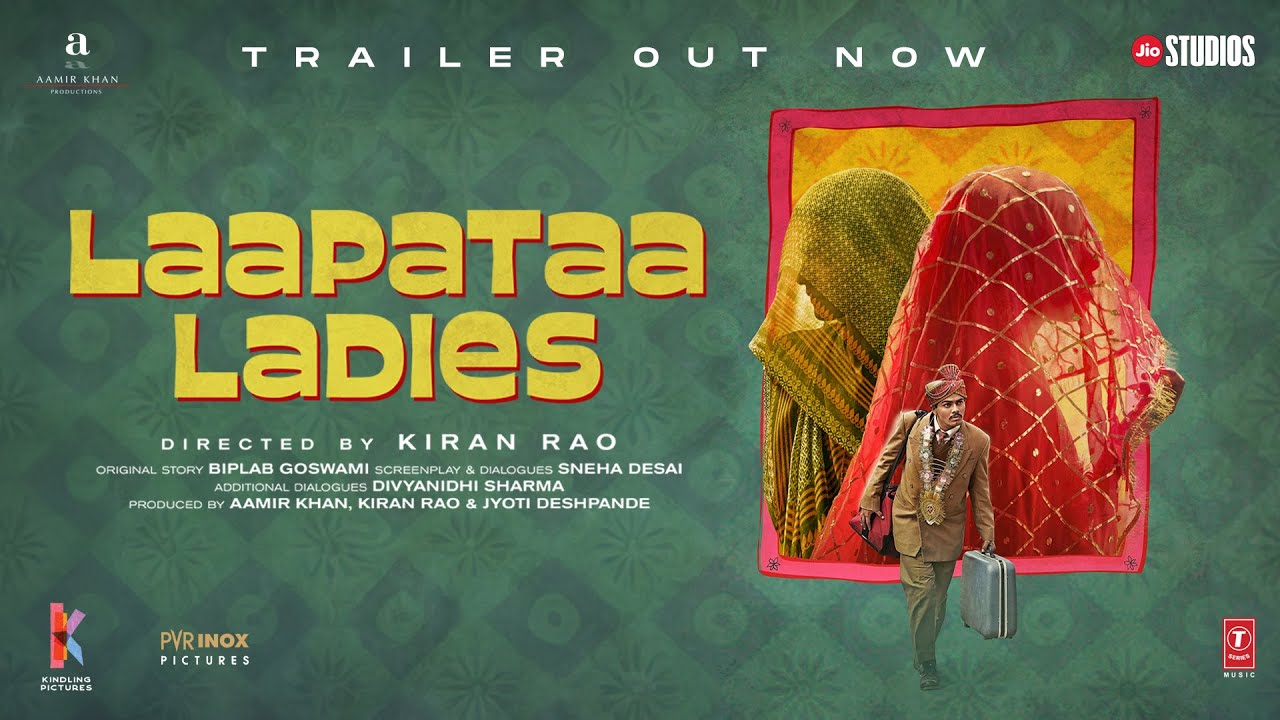As I sat by myself watching Kiran Rao’s sophomore film Laapataa Ladies, I chuckled at the well-written jokes and smiled like a wise old woman at the nuggets of wisdom that, while a little on the nose, rang true. I also wept at the end when a man tells a woman that she should never apologize for having dreams. This line hit me especially hard because if there’s one thing women excel at, it’s feeling guilty. Guilt over not doing enough as a mother, wife, daughter, or working professional. We can feel inadequate or guilty about any aspect of our lives, but we rarely feel guilty about denying ourselves what we truly desire.
While the film focuses on a mix-up between two brides wearing identical red veils, Laapataa Ladies, or missing women, could refer to the women we lose each year as a result of the oppressive constructs of morality, virtue, and honor that emerge organically within a patriarchal society. Constructs represented in the film by the ‘ghoonghat’ or veil, which erases the individuality of the woman wearing it.
To me, it also represented women whose identities are lost because they are never allowed to choose their path. Even today, millions of Indian homes make every parenting decision with the goal of producing an eligible bride and a good wife. So she has a basic education and can hold polite conversations, but she isn’t encouraged to be ambitious. She is quiet, obedient, respectful, maternal, domesticated, religious, and always ‘understanding’. Women, like the film’s female protagonists, Phool and Jaya, board a train at the request of their parents and husbands. In doing so, they embark on a journey with no agency or regard for whether it will lead them to a destination of their choosing. Only when the two ladies in the film get off the train do they get to choose which direction they want to go.
Women have long been associated with sacrifice and selflessness, to the point where putting everyone and everything else ahead of oneself is almost instinctive. As a wise but bitter elderly woman tells Phool, the biggest fraud in our country is the concept of ‘bhale ghar ki beti’, or a girl from a good family, and how she should behave. Unfortunately, patriarchy not only victimizes women, but also forces men to play the dual roles of provider and oppressor. By dividing rather than sharing responsibilities in a heterosexual relationship, we deny millions of women the right to education, income, and self-expression.
As Rao empathetically demonstrates, success or self-expression does not always imply becoming a CEO or business leader. Phool feels empowered after working at a snack stall, making kalakand, and earning her first paycheck. Jaya hopes to complete her education and become a pioneer in organic farming. One woman adores her husband, while another sees marriage as a barrier to achieving her goals. They eventually follow their own paths, and as the film concludes, they board new modes of transportation. But this time, they are alone, unafraid, and in control of their destiny.
For generations, the crimes of underestimating and overprotecting women have gone unpunished. However, the most serious crime is to constantly judge her, regardless of what she does. As I sat by myself watching Laapataa Ladies, it occurred to me that those who are laapata or missing can be located. There is still hope that the situation will change. Rao’s film challenges us to remove our masks and confront the injustice and discrimination that we have accepted over generations. Before another generation of women disappears.

